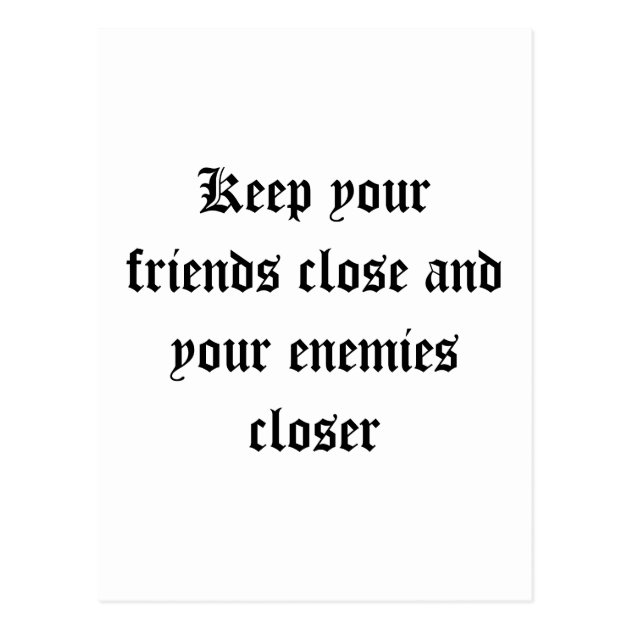
One of the effective strategies I learned from Bill Howell years ago was the significance of making a highly representative “panel” of generally about six people who would indicate the diversity of allegiances or opinions on a problem. You Have To Keep Your Enemies Close to Understand their Perspectives and Interests There are a lot of times when such an individual can assist me to better my position and thinking on a problem. They bring a distinct worldview, perspective, and ideas on a subject of common interest. Often it’s from enemies, adversaries, or fence-sitters. To be sure, my most significant learning doesn’t always come from companions. You Can Learn A lot from people You Dislike Briefly, I’ve found Machiavelli very helpful for my success.īut there are several tremendously important reasons for keeping your enemies closer: 1. As a consultant and a manager, I’ve found several individuals who fit in that same box. These are also individuals whom you’ll require to get your own personal and business objectives. In the business and organizational setting, I allude to the practical"enemy" as an individual you have to interact with, someone who’s competing for your reasonable, who doesn’t follow through on his allegiances, whom you don’t believe, with whom the “bonding” isn’t there, or who altercates with your view from the ground up.

Edit: FWIW, the phrase does not come from Shakespeare or Bible.


I could be wrong (and often am), however. The phrase “Keep your friends close and your enemies closer,” IIRC, arises from a poor English translation in Machiavelli’s letters. The phrase keeps your friends close and your enemies closer mean to keep a sharp eye on enemies beyond what one might have on their companions, to be careful about the actions taken by enemies, it’s not the best idea to trouble your enemies, be affectionate with them but stay alert, another meaning could be, don’t hurt your enemies by words or behaviour to keep them quiet and inoffensive.


 0 kommentar(er)
0 kommentar(er)
